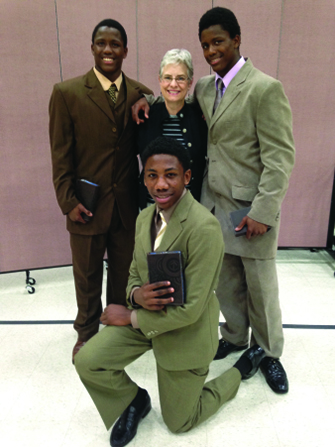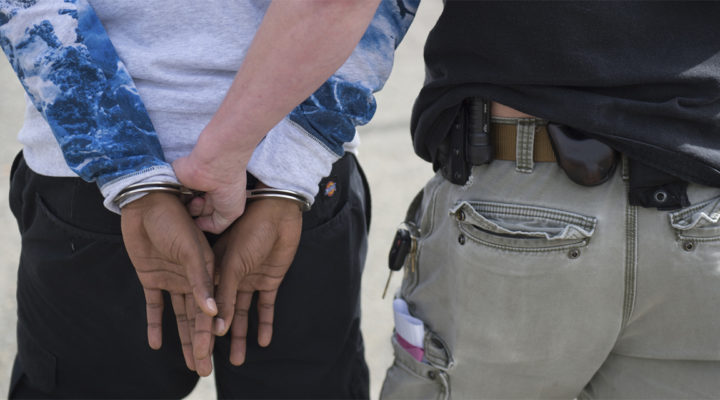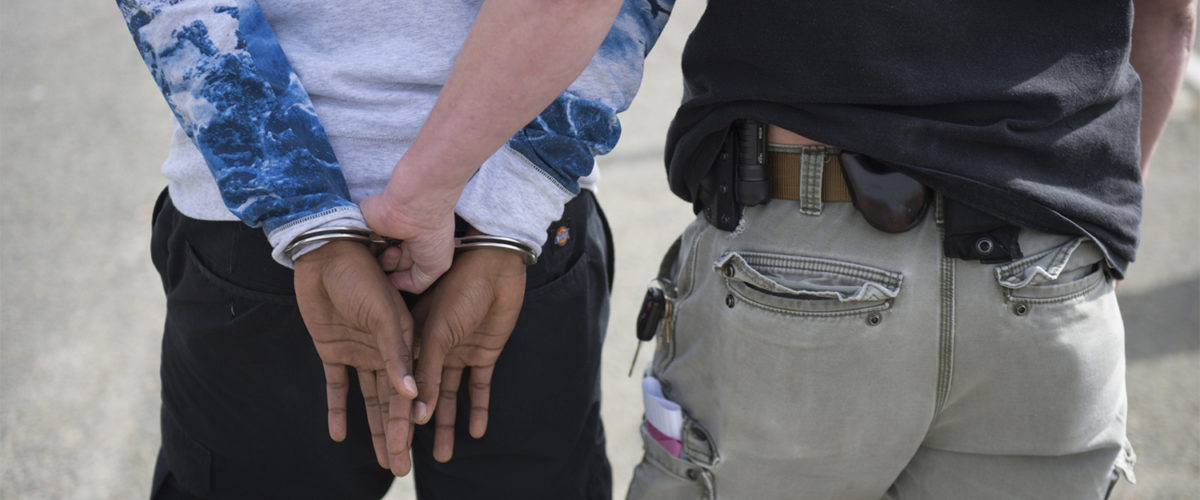Cooperative Baptist Fellowship field personnel Cecelia Beck has established herself as a presence in the lives of children, youth and adults since moving to the “Weed and Seed” neighborhood of Shelby, N.C.
“It is important to be present in order to build relationships and trust,” Beck says. “The original vision and the essence of this ministry is to live in the neighborhood. Otherwise, I could not experience life as my neighbors do.”
Beck’s neighborhood was identified by the United States Department of Justice as an area in need of revitalization. Since moving to Shelby, Beck has experienced many of the challenges her neighbors face.
“My house and van have both been hit by stray bullets. My back storm door was broken out, and my van window was broken on separate occasions.”
Children talk to Beck about the actions they take to hide when they hear gunshots — diving for the floor, running into the bathroom or crouching behind furniture.
“It always strikes me when the subject of conversation with and among the children is ‘did you hear those gunshots?’ and discussion of which direction the gunshots were coming from,” Beck says.
In order to “weed out” violence, officials say the area should be “seeded” for positive growth. Beck’s ministry aims to put this idealistic rhetoric into action.
‘A million eyes watching out for you’

Cecelia Beck (center) is an advocate and maternal figure for children and youth in Shelby, N.C. (Photo/CBF)
Beck’s primary responsibilities are serving as an advocate and maternal figure for local children and youth. She arranges, coordinates and facilitates resources for their involvement in various churches including First Baptist Church and Aldersgate United Methodist Church, both in Shelby, and Winter Park Baptist Church in Wilmington, N.C.. Activities for children include Sunday worship, youth choir, camp, retreats and an upcoming mission trip to Belize.
Beck ensures that youth can participate in different experiences despite logistical or economic issues. She worked with three boys in Wilmington who had never sat in a restaurant or ordered from a menu. Every Sunday, Beck takes the youth out for a meal. Members of the community may help, and a family from First Baptist Church recently invited the group to their home for Sunday lunch.
“In addition to church activities, it is important to expose the children to opportunities that broaden their horizons — like seeing the ocean and hiking in the mountains,” Beck adds.
Although her work in the neighborhood is a full-time job, Beck also has what she refers to as her “tent-making job” — working as a hospice chaplain in a nearby county.
“As a trained chaplain and grief counselor, I have been sought out and been able to provide grief support to neighbors.”
Beck was previously working 40 hours a week on top of her duties in Shelby. However, after missing the funeral of a neighbor because of work commitments, Beck made the decision to raise additional financial support so she could be consistently available to her neighbors.
Since decreasing her hours at hospice, she has been able to invest more time in the lives of youth: attending numerous sports events and being available for transportation. Two high school players always tell her when they see her sitting in the stands or when they aren’t able to find her at a game.
Because Beck’s home is on a visible corner of the neighborhood with constant foot traffic, youth stop by to talk about their struggles and triumphs at home or school. Adults also share concerns. Neighbors look out for Beck, taking the time to speak with her and tell her she is appreciated.
“On several occasions as I have spoken to folks passing by, they say, ‘Hi, Ms. Beck, pray for me.’ These were people I did not know,” Beck says. “One of my favorite neighbors was a man who once told me that ‘there are a million eyes watching out for you.’”
‘God sent you here’
Ministry in the Weed and Seed neighborhood can be overwhelming as Beck works with an increasing number of families, organizations and churches. She has faced theft and vandalism of her home from a group of children as young as 11. Lately, the increased frequency of gunshots has caused Beck to discontinue visits from her own grandchildren. However, this has not stopped Beck from her ministry with the youth and children of Shelby, who are achieving success despite systemic challenges.
“I am not discouraged by the violence. It motivates me to try harder to teach the children to live differently. It saddens and frightens me that they are so accustomed to so much violence as a way of life.”
“I am not discouraged by the violence. It motivates me to try harder to teach the children to live differently. It saddens and frightens me that they are so accustomed to so much violence as a way of life.”
Beck has learned to rely on her neighbors, whom she considers family. In response to the idea that ministers face the temptation to start seeing people as projects, Beck disagrees.
“From the beginning, I saw my neighbors as neighbors, not projects. It has been very important that I concentrate on ‘being with’ rather than ‘doing for’ my neighbors even though I do much for them.”
This “being with” can come in many forms from meeting physical to spiritual needs. Beck says the struggle to keep electricity running is a challenge she hadn’t considered before moving to Shelby.
“All of the children I work with except for one family have experienced having electricity turned off for varying lengths of time. One family with two elementary-aged children lived without power for four months. They had a fireplace and survived by all sleeping in the same room and cooking over the fire. They took showers and baths at the home of a relative.”
Beck and her neighbors have faced difficult times together, including events after the shooting death of a 26-year-old man involved in local gangs.
“Some members of his gang drove through the neighborhood shooting from a car. I was in the process of picking up children and youth for Wednesday night church and had a van full,” Beck says. “We all dove for cover. My neighbors came out of houses to find out what was going on, and we all commiserated with one another. We are experiencing the trauma and fear together as neighbors.”
Although the neighborhood has its dangers, Beck reaffirms her decision to live in Shelby.
“If I were a missionary in China, I would move to China and live among the people and learn their culture and their language. Being a missionary in the United States is the same. If I just come and go from the neighborhood once in a while, it is like putting a Band-Aid on a gaping wound. In neighborhoods with major challenges, it is not helpful to come and go.”
Beck will continue to minister in her neighborhood while learning from and encouraging the community. She reflects on moments that confirm she is working in the right place.
“Last year, I was driving some boys home from wrestling practice. One of the boys is part of a family I met my first summer here. Out of the blue he said, ‘You know, Ms. Beck, I think God sent you here to help us.’”


